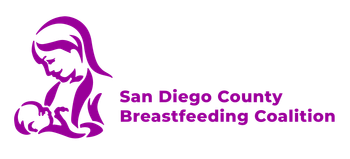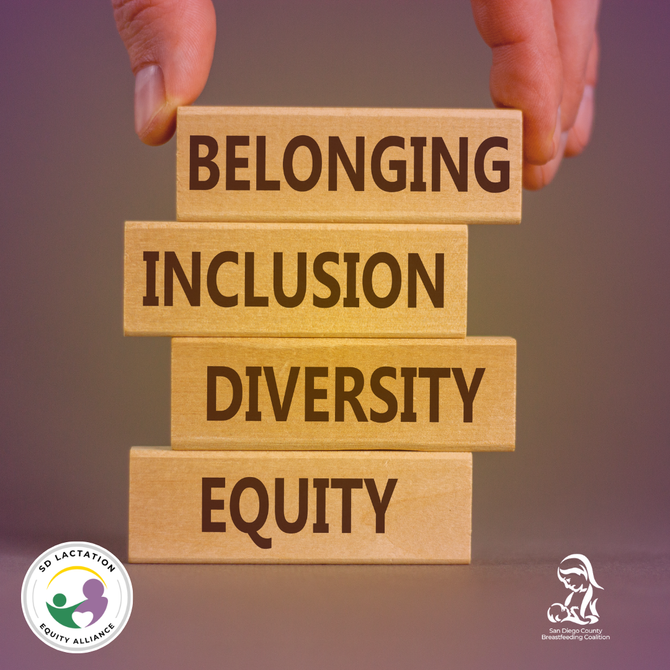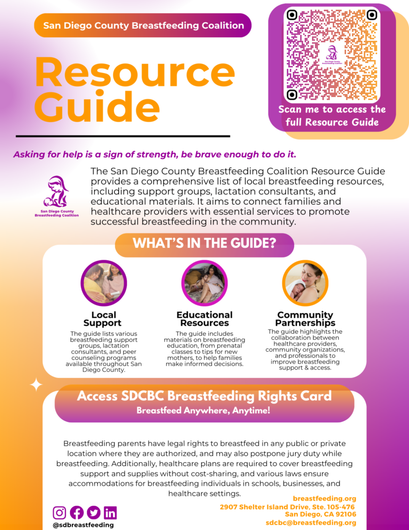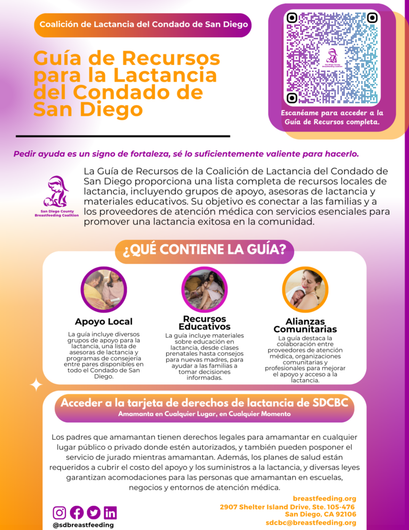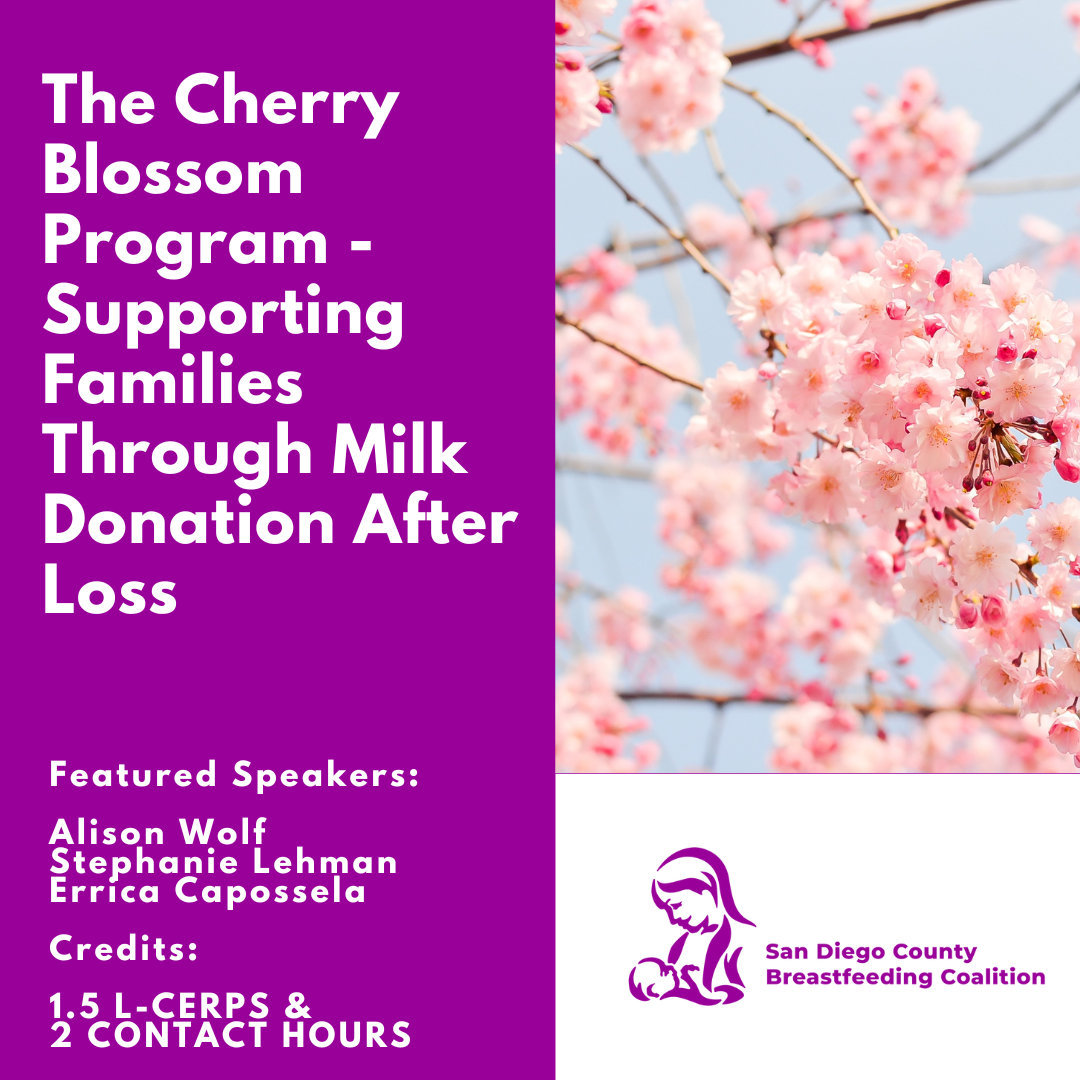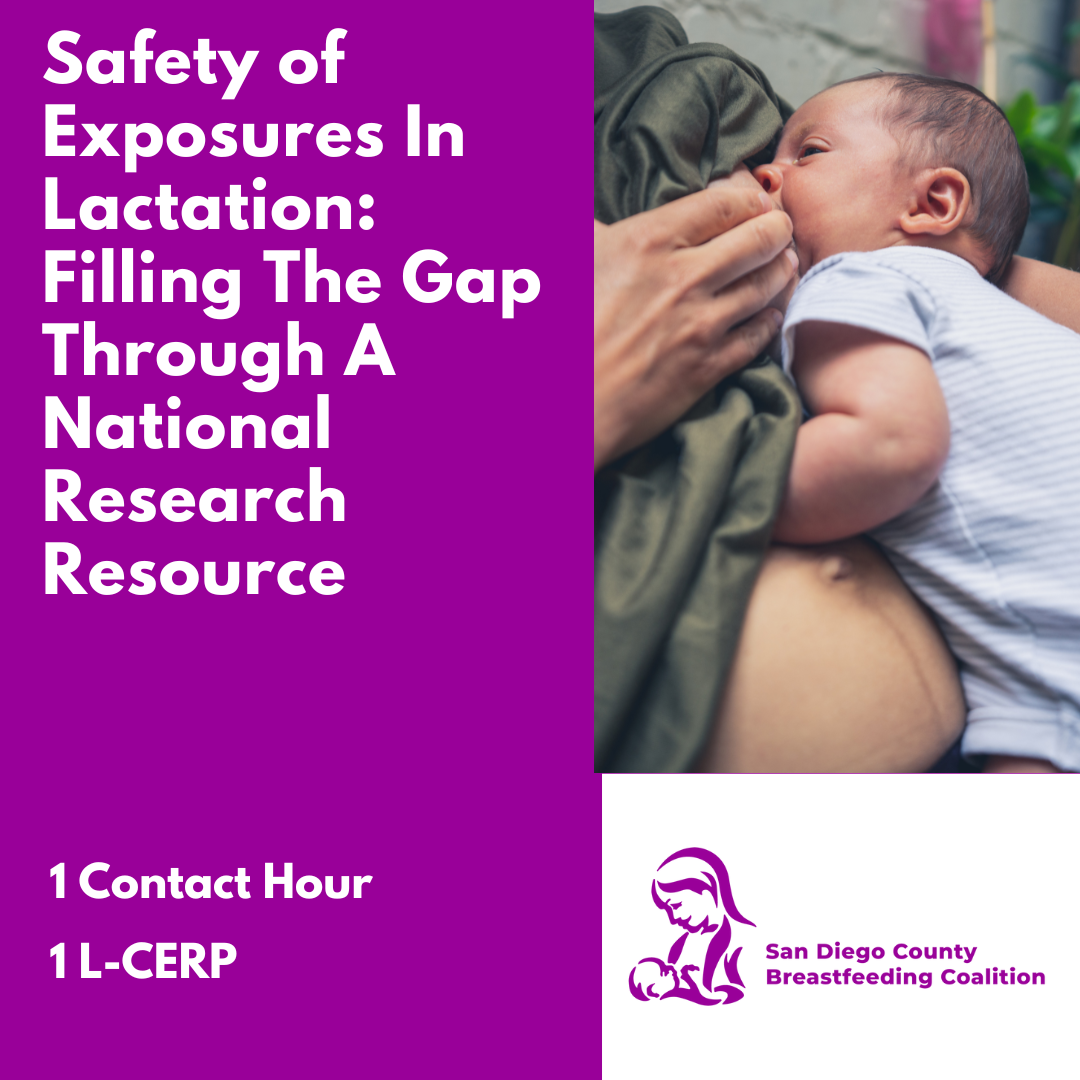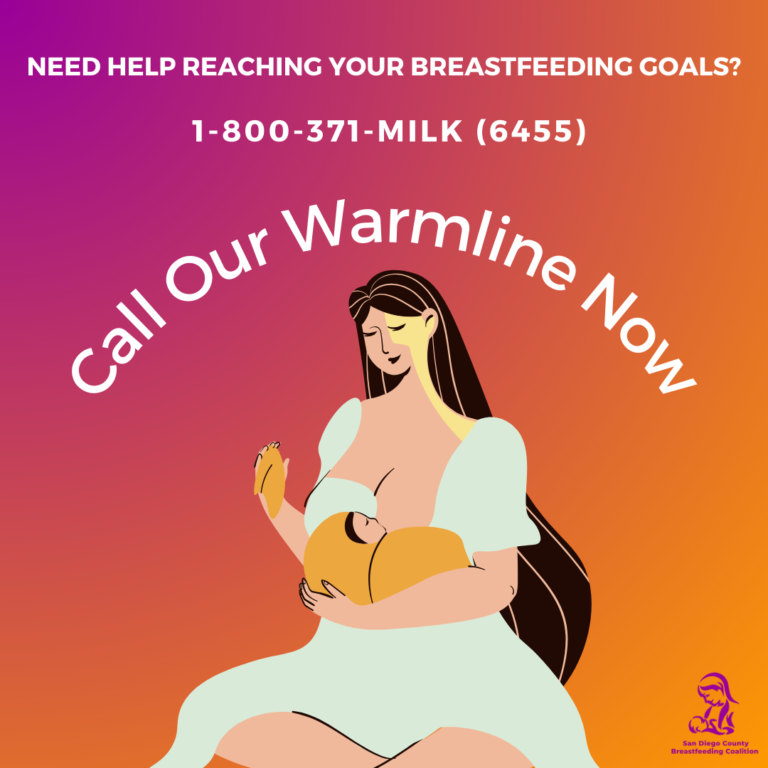Our mission is to improve the health and wellbeing of our community by protecting, promoting and supporting breastfeeding through education, outreach, advocacy, and service. We strive to make breastfeeding possible by working with mothers, businesses, health care professionals, and the community.
MISSION STATEMENT
The San Diego County Breastfeeding Coalition is a 501©3 non-profit organization that has been serving the San Diego bringing together health care providers, agencies, organizations, individuals, families, and other breastfeeding advocates to support, protect and promote breastfeeding who are passionate about making breastfeeding attainable for all families in the San Diego and Imperial Counties.
Lunch & Learn
The San Diego County Breastfeeding Coalition (SDCBC) has been proudly teaming up with the San Diego Lactation Equity Alliance (SDLEA) to host a series of engaging Lunch & Learn webinars. These collaborative sessions are designed to advance lactation equity across San Diego by centering community voices, sharing knowledge, and uplifting culturally responsive care. Be on the lookout for upcoming webinars — and if you missed a session, past recordings are available for viewing anytime!
2024 Annual Report
We are excited to share that the 2024 Annual Report is now available! This year, we've made tremendous strides in promoting and supporting breastfeeding across our community, and we couldn’t have done it without you.
Inside the report, you'll find highlights of our initiatives, key accomplishments, and the powerful impact we’ve made together in improving breastfeeding support for families in San Diego County. From outreach programs to educational workshops, our collective efforts are creating a healthier future for our community.
We invite you to take a moment to read through the report, celebrate what we’ve achieved, and learn more about how we can continue this important work moving forward.
Click the button below to read the full 2024 Impact Report.
Thank you for your continued support and commitment to breastfeeding advocacy. Together, we are making a difference!
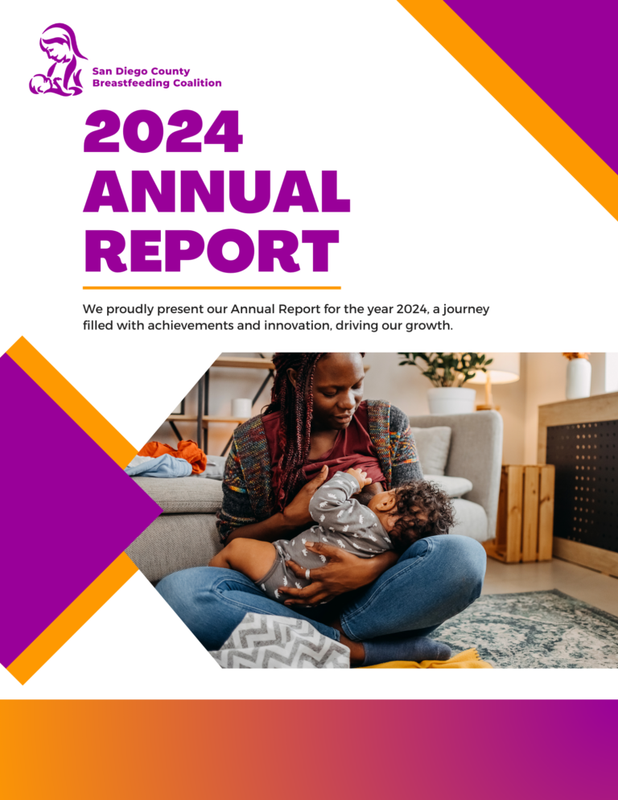
Introducing the New, Easily Accessible Resource Guide
We’re committed to ensuring that everyone in our community can easily access breastfeeding support and information. That’s why we’re excited to share a new, easy-to-distribute one-page handout featuring key highlights from our Resource Guide—plus a QR code linking directly to the full pamphlet online.
This handout is perfect for clinics, community centers, and outreach events—helping families and professionals connect with vital resources quickly and conveniently.
NEED SUPPORT?
Continuing Education Webinars Now Streaming
Browse our virtual library of evidence-based, community-focused lactation webinars
Have Questions about Breastfeeding? Need Support?
Lactation Educators Now Available to answer your calls in English, Tagalog, French, Arabic, Korean, Haitian, and Spanish
Call 1-800-371-MILK (6455) with your questions and we will call you back!
Thank you so much to all those who attended, shared our event flyer, donated an item to the auction or raffle, and/or made monetary donations. Every single act of support helps contribute to our goal of making a positive impact in the lives of breastfeeding families across San Diego County.
We are still over the moon about how special the evening was. We were so grateful to share space with some of San Diego County's most committed and dedicated breastfeeding advocates.
QUICK LINKS
News & Updates




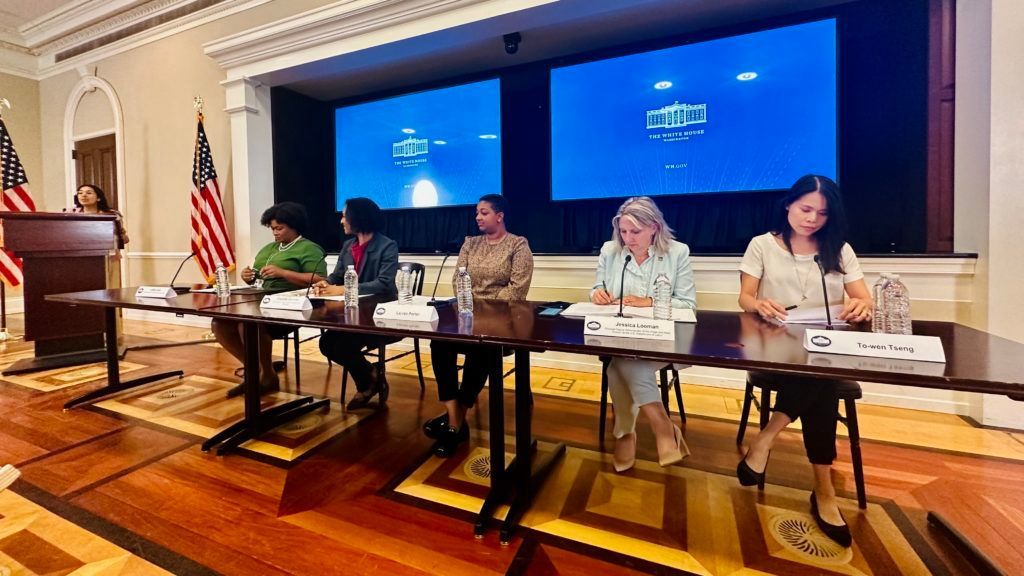


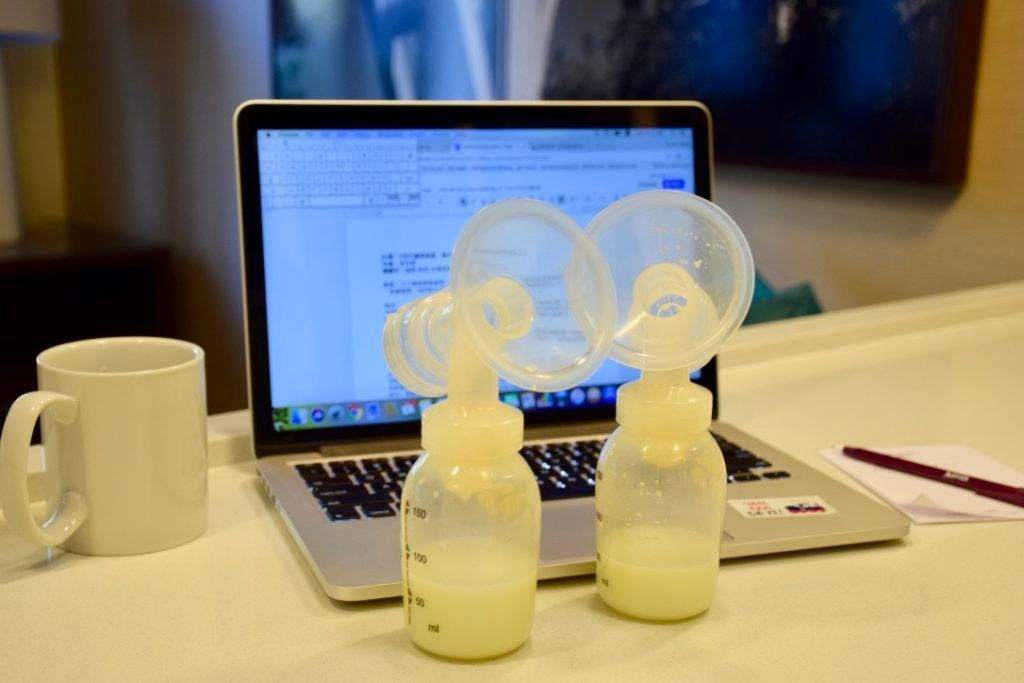


View this profile on InstagramSan Diego Breastfeeding Coalition (@ sdbreastfeeding ) • Instagram photos and videos
